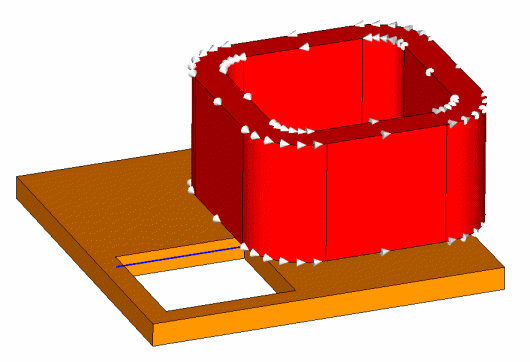


This example consists of an aluminum plate (electric conductivity = 3.526e7 S/m) with a hole and an excitation coil above the plate with a time-harmonic driving current of 2742 AT at a frequency of 50 Hz. The driving current reaches the maximum at a phase of 0 degrees. The z-component of the B-field is recorded on a line (in the model curve1/line1) between the plate and the coil.
The structure generation is quite easy. To construct the aluminum plate, one needs to define a brick first. The hole is created by subtracting a second brick from the first one. The coil is created from a rectangular profile curve and a rectangular path curve with blended corners. To obtain highly accurate results, a third brick with vacuum material properties is created around the measuring line.
The mesh is refined inside the coil, the vacuum brick and the aluminum plate, by defining a minimum stepwidth for each object. The simulation is executed with a tetrahedral mesh, where the option of the adaptive mesh refinement is switched off. Peak source values are employed for the simulation.
After the calculation the magnetic and electric fields as well as the eddy currents inside the plate and the source and total currents are available in the "2D/3D Results" folder. Moreover, the Bz field can be examined on the previously defined curve (Folder: Tables/1D Results/Bz along curve).